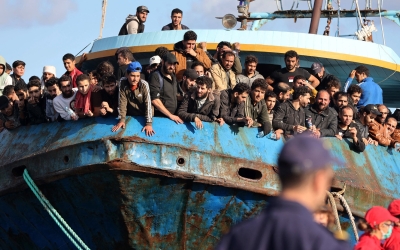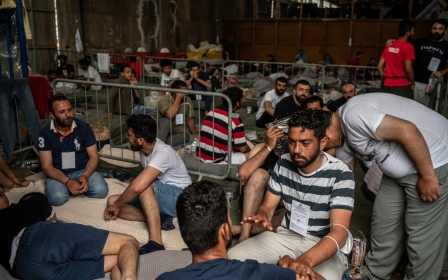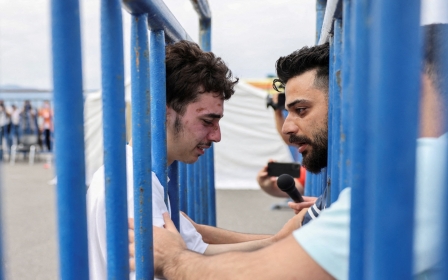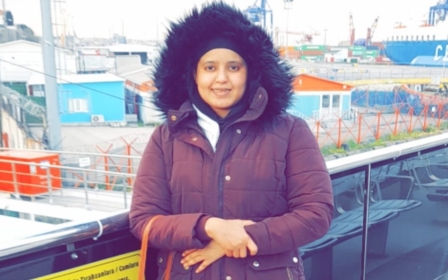Greece shipwreck: Smugglers behind tragedy 'linked to Libya's Haftar'
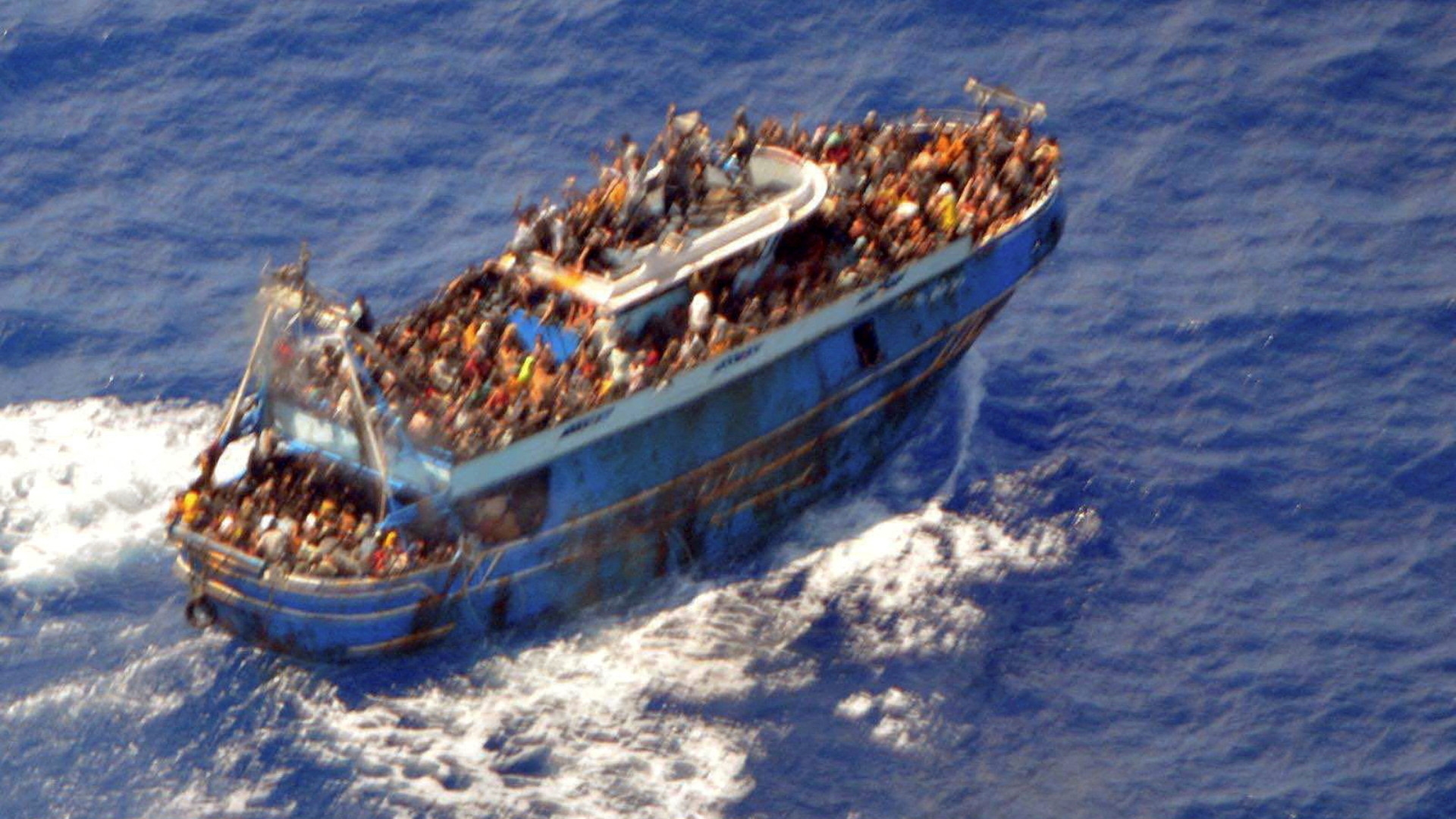
The people behind the deadly shipwreck off Greece in June are smugglers with close ties to Libya's eastern commander Khalifa Haftar, according to a new media investigation.
Based on testimonies from a survivor, a smuggling helper and a Libyan insider, a man named Muhammad A., who works for a special forces unit under Haftar's control, was the main facilitator of the trip.
On 9 June, a boat set sail from the eastern Libyan city of Tobruk, which is under Haftar's control, carrying approximately 750 people hoping to reach Europe.
The overburdened vessel sank off Greece's Peloponnese peninsula five days later. There were 104 survivors, but more than 500 remain missing in one of the deadliest shipwrecks of refugee boats in years.
Der Spiegel, research network Lighthouse Reports, and the media organisations Reporters United, El Pais and Siraj on Friday published the findings of an investigation into the smuggling network which organised the boat trip.
Lighthouse Reports said that "survivors, insiders and analysts explained that the trip was organised with wide-ranging support from powerful people reporting to Haftar".
The boat set sail at night despite a curfew being in place in Tobruk. Muhammad A. allegedly bribed Libyan coastguards to turn off the radar when the boat set sail.
'All trips are overseen by [Khalifa Haftar's] son, Saddam Haftar''
- survivor of ship wreck
One survivor said that "all trips are overseen by [Khalifa Haftar's] son, Saddam Haftar''.
"Saddam leads the cooperation himself or assigns one of the frogmen battalions or the 2020 battalion, depending on who has more migrants to pay the fees."
Muhammad A. and the spokesman for Haftar did not respond to the allegations sent to them by Der Spiegel.
Greece's role questioned
In the aftermath of the shipwreck last month, Greek authorities arrested nine Egyptian survivors accused of being part of the smuggling network that led to the disaster.
However, activists say the allegations are based on "fragile evidence". The men pleaded not guilty and said they paid money for their passage to Italy.
They now await trial in Greece and could face life imprisonment if convicted.
Lighthouse Reports previously accused Greece of trying to "cover up" its role in the tragedy by "tampering with evidence".
Survivors of the shipwreck have accused the Greek coastguard of ignoring their pleas for help, leading to the loss of many more lives.
Ayad, from Syria, told the Times that Greek authorities "just watched", and that they "could have saved many more people". The coastguard did not send help for at least three hours, according to five survivors of the wreck.
The Greek coastguard maintains that the overcrowded fishing trawler was proceeding on its course to Italy and had refused help.
But a BBC investigation has revealed that the vessel was not moving for at least seven hours before it capsized, and a host of NGOs say they received distress calls from the boat.
Frontex, the EU's border agency, said it had offered aerial support to Greek authorities before the shipwreck but received "no response".
Middle East Eye propose une couverture et une analyse indépendantes et incomparables du Moyen-Orient, de l’Afrique du Nord et d’autres régions du monde. Pour en savoir plus sur la reprise de ce contenu et les frais qui s’appliquent, veuillez remplir ce formulaire [en anglais]. Pour en savoir plus sur MEE, cliquez ici [en anglais].


